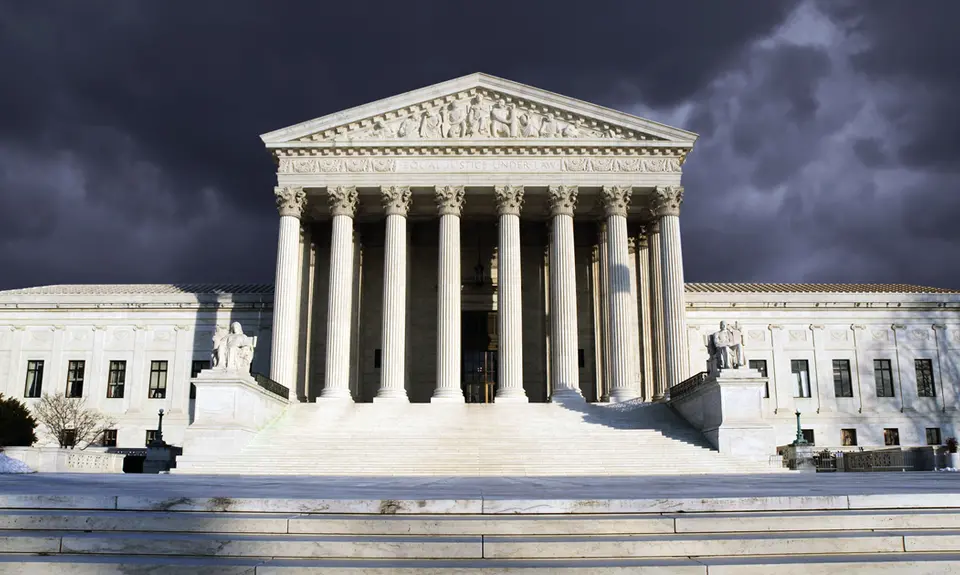“Confirmed Judges, Confirmed Fears” is a blog series documenting the harmful impact of President Trump’s judges on Americans’ rights and liberties. Cases in the series can be found by issue and by judge at this link.
Trump Sixth Circuit Judge John Kenneth Bush cast the deciding vote to affirm the removal of a lawful permanent resident living in the United States for more than 15 years. The October 2020 decision was Bribiesca v. Barr.
In March 2007, Susana Bribiesca--a lawful permanent resident of the United States since 2001--flew to Tijuana in order to go with relatives to visit other relatives living in Los Angeles. Bribiesca was a passenger in a car including five relatives, among them a five year-old cousin, who drove to Los Angeles. Upon reaching the port of entry, the family was questioned three times: first by the initial officers at the port of entry, then officer Banuelos who discovered that the driver of the car did not get authorization from the boy’s parents, and finally by the port enforcement team. Most of the questioning was directed at the driver of the car and others, but one of the immigration officers later filled out an I-213 form in which he claimed that Bribiesca allegedly admitted in an interview with him and another officer that she had “attempted to smuggle” her young cousin “into the United States,” which she later denied.
Bribiesca was charged with “knowingly encourag[ing], induc[ing], assist[ing], abett[ing]...an undocumented alien to enter or try to enter the United States,” an offense that would render her inadmissible and deportable, and told to appear at a hearing that could result in her deportation. She was deemed removable by an immigration judge (IJ) in June 2011, but the case was remanded for reconsideration in accord with newer Sixth Circuit precedent, which requires that in order to deport a lawful permanent resident, the government must prove by “clear, unequivocal, and convincing evidence” that the resident had committed the alleged acts that would render her inadmissible. The IJ found her inadmissible under that standard, the Bureau of Immigration Appeals agreed, and Bribiesca submitted a petition for review to the Sixth Circuit.
The majority, including Trump judge Bush, denied the petition. The I-213 form plus the officers’ testimony, the majority ruled, was enough to meet the demanding “clear, unequivocal and convincing” evidence standard. A “reasonable factfinder” could conclude, the majority wrote, that Bribiesca “acted knowingly” when she attempted to “assist” the five-year-old’s “entry into the United States.”
George W. Bush nominee Judge Julia Smith Gibbons strongly dissented. Initially, she explained that the majority should have ruled that the I-213 form was inadmissible, based on previous rulings by the Sixth and Ninth Circuits. The form is “unreliable” and did not contain “any record,” Gibbons continued, of the officers’ specific questions or Bribiesca’s specific answers, whether either of the interviewers spoke Spanish, or whether an interpreter was present, as Bribiesca had required for the immigration hearing. Instead, Gibbons went on, it consists primarily of “cursory and vague notes,” there was no video recording or transcript even though the form states that there was a video recording, and neither of the interviewing officers was present at the hearing.
Judge Gibbons also found that the government’s remaining evidence “failed to satisfy its burden of proof’ to show that Bribiesca “knowingly” tried to smuggle the boy across the border by “clear, unequivocal, and convincing” evidence. The two officers who did testify had only “minimal” interactions with Bribiesca, Gibbons explained, since they were focused on the driver of the car and others. Gibbons concluded that there was clearly insufficient evidence that Bribiesca had engaged in a knowing and “affirmative act” to illegally smuggle someone across the border.
As a result of Bush’s deciding vote, however, a legal resident of the US for almost 20 years will be deported. In addition, the lax standard of proof and the admissibility of the I-213 form according to the majority may well harm other immigrants and legal residents facing deportation.
Note: The initial draft of this post was prepared by PFAW legal intern Oliver Telusma
